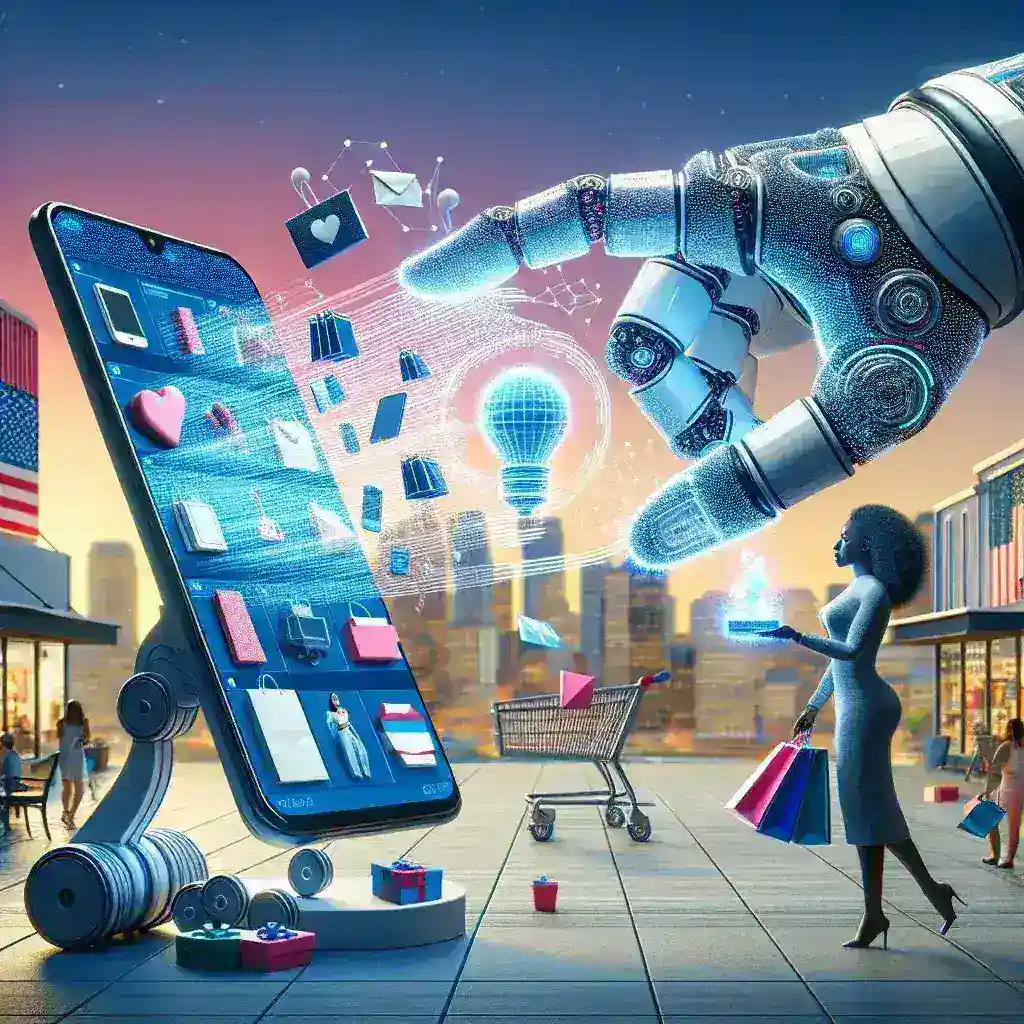Introduction
In an age where personalization is key to customer satisfaction, Target has taken a significant step forward by rolling out AI-powered shopping history personalization in its U.S. app. This innovative feature is designed to enhance the shopping experience by offering tailored product recommendations based on individual shopping habits. As Target continues to evolve in the competitive retail landscape, this move not only aligns with modern consumer expectations but also sets a benchmark for the industry.
The Importance of Personalization
With the growing emphasis on personalized shopping experiences, retailers are increasingly leveraging technology to cater to individual preferences. Personalization is not merely a trend; it’s a necessity. Consumers today expect brands to understand their needs and preferences, thus providing a more engaging shopping experience.
Why Personalization Matters?
- Enhanced Customer Experience: Personalized recommendations lead to higher satisfaction levels.
- Increased Sales: Tailored promotions can drive more sales, as customers are more likely to purchase items that resonate with their preferences.
- Brand Loyalty: When customers feel valued, they are more likely to return to the same store.
How Target’s AI-Powered Personalization Works
Target’s new AI feature analyzes shopping history, identifying patterns and preferences to suggest products that a user is likely to need or want. This system builds a unique profile for each customer, allowing for continuous improvement of recommendations over time.
Key Features of the AI System
- User-Friendly Interface: The app maintains a simple interface, making it easy for shoppers to navigate through personalized suggestions.
- Real-Time Adaptation: The AI can adapt its recommendations in real time, responding immediately to any new shopping behavior.
- Detailed Shopping Insights: Users receive insights into their shopping patterns, which can help them make more informed purchasing decisions.
A Historical Context of Target’s Technology Journey
Target has a rich history of embracing technology to enhance customer experiences. From the introduction of mobile apps to the implementation of data analytics, Target has consistently pushed the envelope in retail innovation. The introduction of AI-powered personalization is the latest chapter in this ongoing saga.
Previous Technological Innovations
- Mobile Shopping App: The launch of its mobile shopping app marked Target’s foray into digital retail.
- Data Analytics: Utilizing customer data to optimize inventory and marketing strategies.
- Same-Day Delivery Services: Response to consumer demand for faster fulfillment options.
Future Predictions: The Evolution of Shopping Personalization
As technology continues to advance, the future of shopping personalization is poised for even greater sophistication. Predictive analytics, machine learning, and enhanced AI capabilities will likely play pivotal roles in shaping how retailers engage with customers.
What to Expect?
- Hyper-Personalization: More tailored recommendations based on even more granular data.
- Voice-Activated Shopping: Integration with voice assistants for a seamless shopping experience.
- Virtual Reality Integration: Immersive shopping experiences through VR technology.
Pros and Cons of Target’s AI-Powered Personalization
While the introduction of AI-powered shopping history personalization has numerous advantages, it also comes with certain drawbacks that need consideration.
Advantages
- Enhanced User Engagement: Personalized experiences draw users into the app more frequently.
- Improved Shopping Efficiency: Customers can find products faster, streamlining the shopping process.
- Targeted Marketing: Brands can create more effective advertising campaigns.
Disadvantages
- Privacy Concerns: Users may worry about how their data is being used.
- Over-Reliance on AI: There is a risk that the system may misinterpret preferences.
- Technical Glitches: Bugs and errors can lead to poor user experiences.
Real-Life Examples of AI Personalization Success
Several companies have successfully integrated AI personalization into their services, showcasing the potential benefits of Target’s new initiative.
Examples of Success
- Amazon: Known for its personalized recommendations, Amazon utilizes customer data to suggest products effectively.
- Nike: Leverages customer data to create tailored shopping experiences, enhancing brand loyalty.
- Netflix: Uses AI to suggest shows and movies based on viewing history, keeping users engaged.
Cultural Relevance of AI in Retail
The integration of AI into retail is not just a technological advancement; it reflects broader cultural shifts in how consumers interact with brands. As people increasingly seek convenience and personalized experiences, retailers must adapt to stay relevant.
Consumer Expectations
- Convenience: Shoppers expect a quick and seamless experience.
- Customization: The desire for products that reflect personal tastes is at an all-time high.
- Transparency: Consumers want to understand how their data is being used.
Conclusion
Target’s rollout of AI-powered shopping history personalization in its U.S. app marks a significant milestone in the evolution of retail technology. By harnessing the power of AI, Target is not only enhancing the shopping experience but also demonstrating its commitment to meeting modern consumer demands. As we move forward, the implications of such innovations will continue to reshape the retail landscape, setting a new standard for how brands interact with their customers.

Leave a Reply